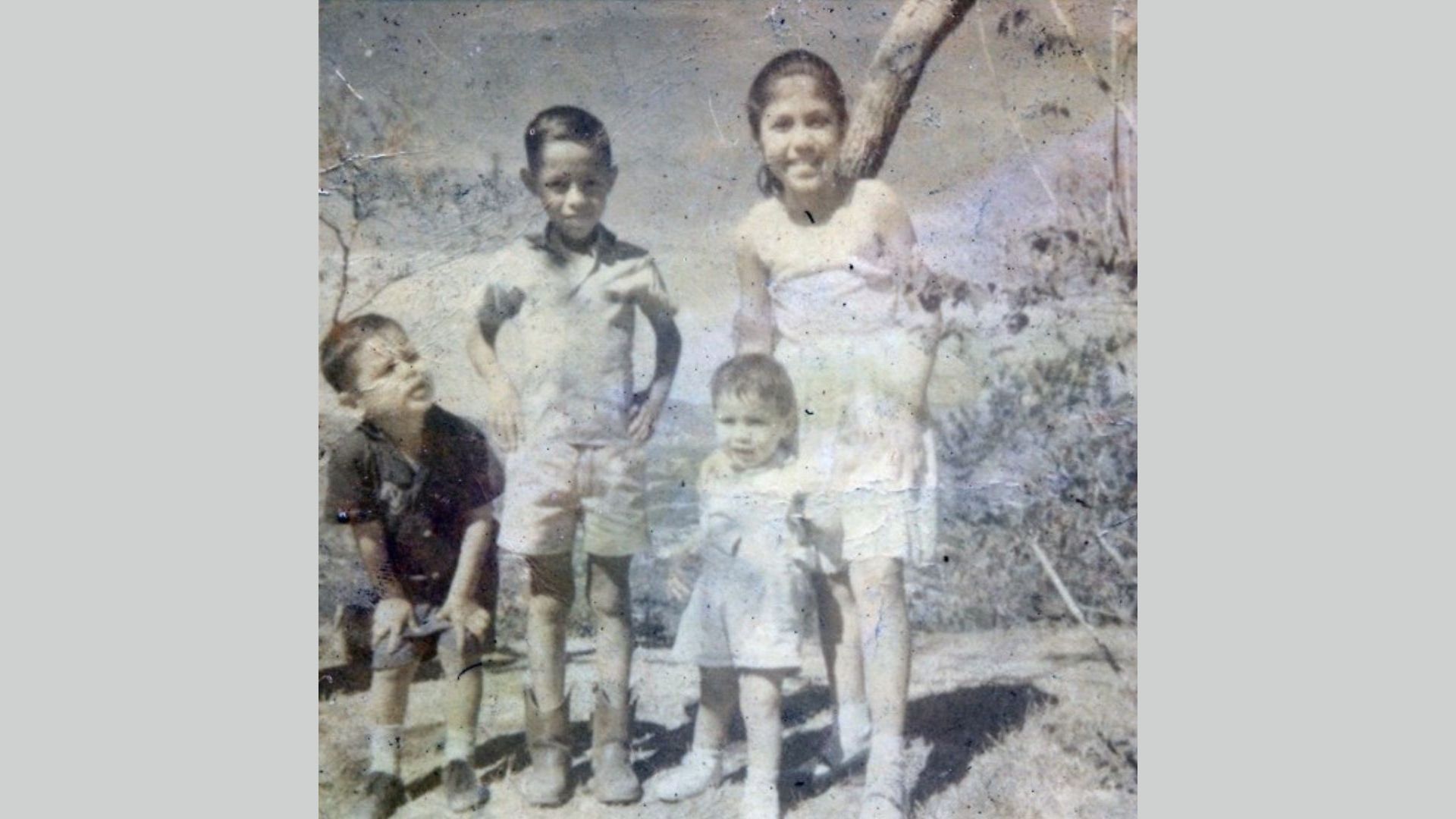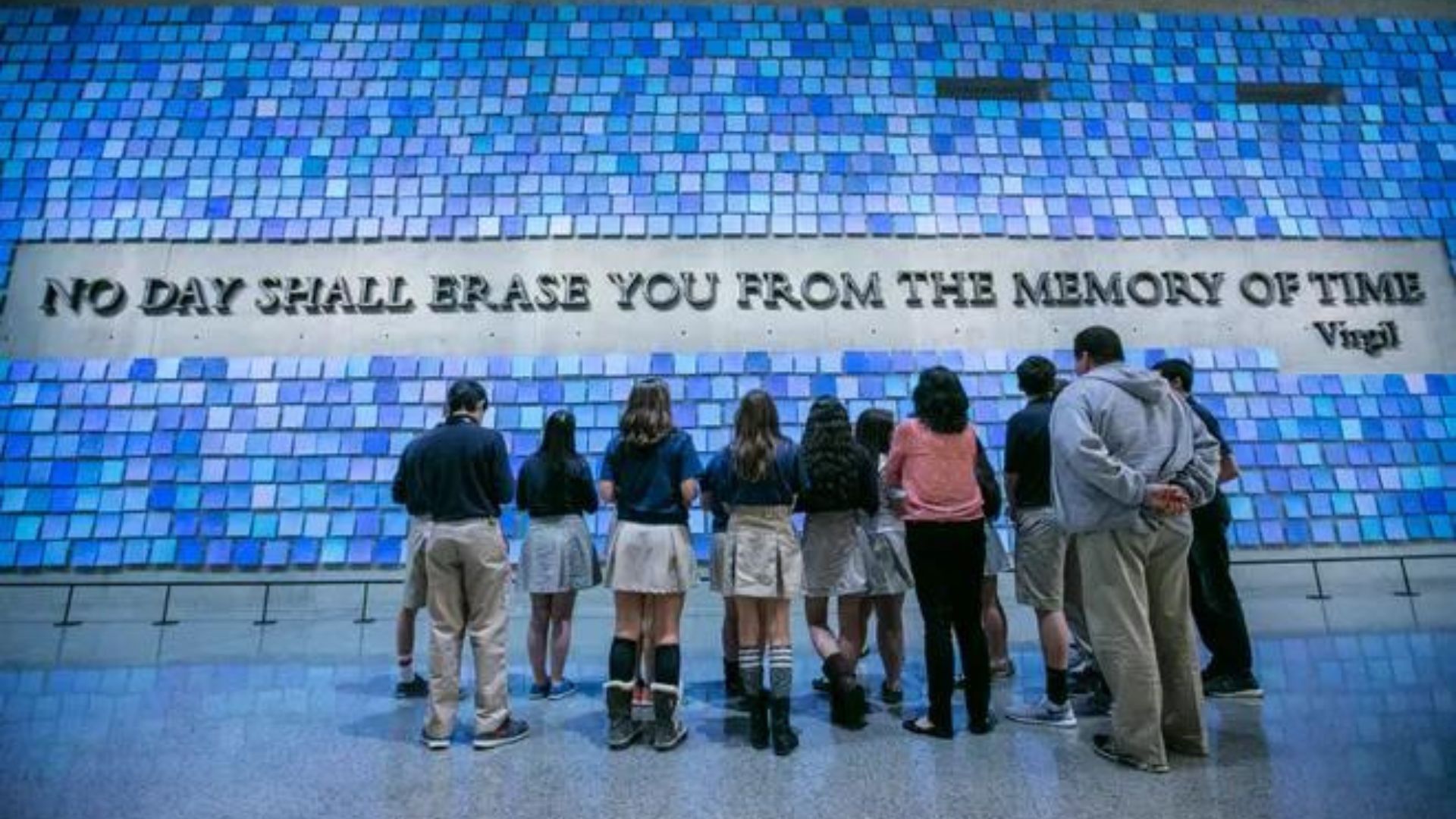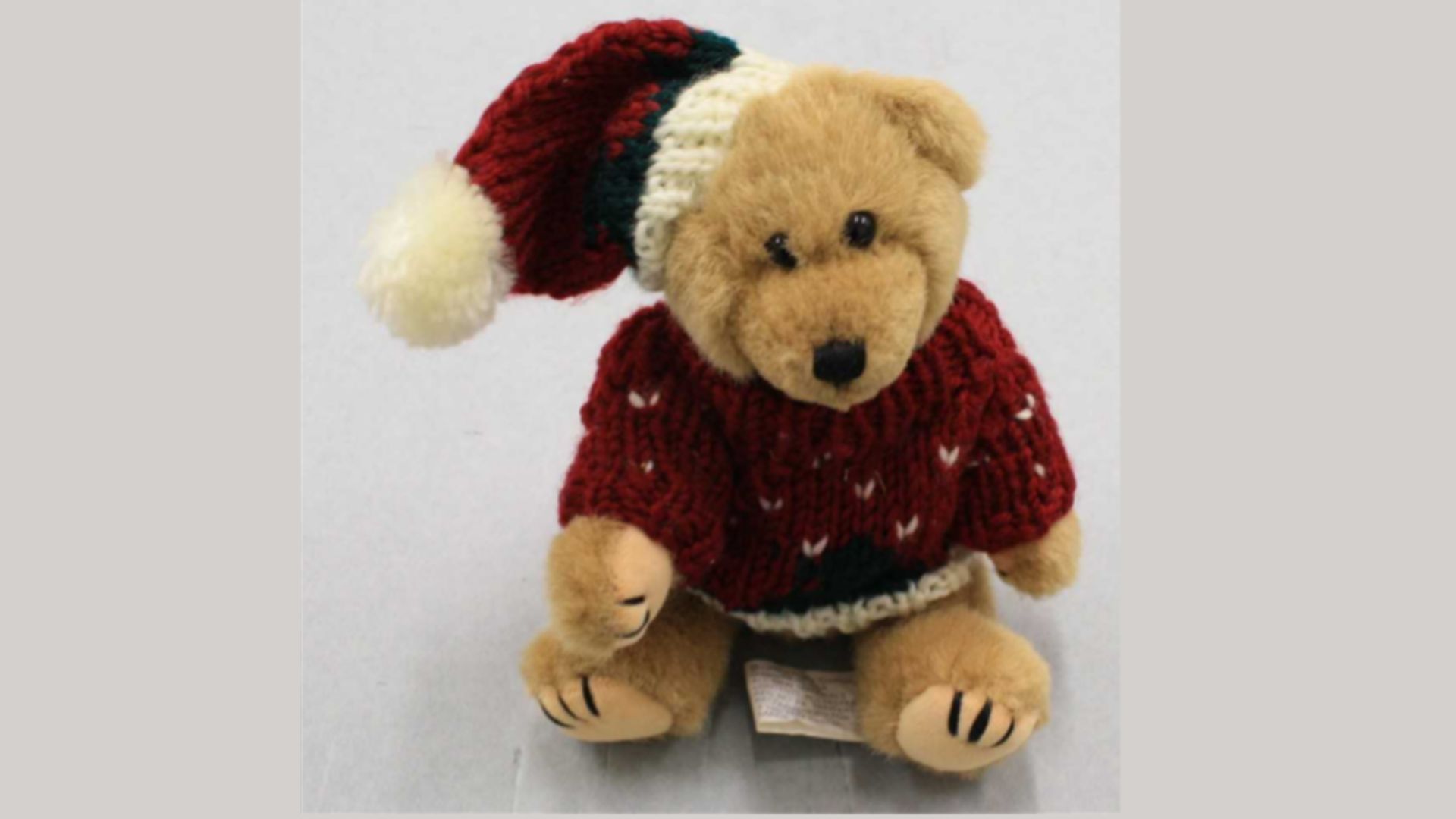Remembering Ana Gloria Pocasangre de Barrera

A guest blog post from our Curatorial Assistant highlights memories and newly acquired photographs from the family of Flight 175 victim Ana Gloria Pocasangre de Barrera.
Op-Ed: The Lessons of 9/11 Won't Be Learned on TikTok

The following is the text of an opinion piece written by 9/11 Memorial & Museum President & CEO Elizabeth L. Hillman, published in USA Today on November 27, 2023.
As I sit here at the site where the Twin Towers fell, and where thousands of lives were lost in an unfathomable act of evil more than two decades ago, people on TikTok, X and other platforms are revering the architect of that massacre, Osama bin Laden.
How did we get here?
Twenty-two years after 9/11, many Americans, and people around the world, have forgotten. The history of that day still feels fresh to many who lived through it: the uncertainty, the incomparable loss, the hope for survivors, the realization that our world had changed forever. But for more than 100 million Americans, 9/11 is not a memory lived, but history to be learned. This is why the 9/11 Memorial & Museum that I lead has made education about 9/11 — and about terrorism itself — central to our mission.
We have developed age-appropriate lesson plans and programs for America’s classrooms, but the sad truth is that not enough schools and not enough states are ensuring that their children know this history. We’re seeing the effects of this in real time. A 9/11 curriculum should be taught in all of America’s classrooms, yet in most states, this does not happen. Understanding the 9/11 story can bring us together and change our shared future. We need the courage to make sure we realize that future.
One of the most frequently asked questions from students learning about 9/11 through the education programs and resources we provide is, “Who did this, and why?” The world knows the answer — Osama bin Laden and al-Qaeda — and our organization ensures that the memory of all those murdered on 9/11, their families, and the heroes who responded that day are central to understanding and teaching what happened on September 11, 2001. The context — what transpired before, during, and after — matters, and providing the full story is our mission.
That’s why the recent surge of interest in Osama bin Laden’s Letter to America, which was written in 2002, is so disturbing to me as an educator, military historian, and veteran. After all, if he can be cited with reverence today because of his sinister views of U.S. policy in support of Israel, our nation and the world must have forgotten the history of that tragic day. Bin Laden’s words in that treatise tried to rationalize and defend that which can never be justified — terrorism itself — and we cannot sit idly by as that distortion trends on TikTok, X or anywhere else.
This distortion gives us a chance to reassess how we can redirect people and challenge those who languish in a post-factual world. For students to answer that fundamental question of, “Who did this and why?” we believe it is essential to offer historical context and invite students to examine for themselves what historical actors like bin Laden believed and did.
The full story of 9/11, however, is about the consequences of terrorism on both individual lives and our shared history. Our museum educates visitors, in person and virtually, about the local, national, and global impact of the 9/11 attacks. We exist to make sure we never forget that tragic day 22 years ago. In 2021, we launched The Never Forget Fund to further our educational mission, and as we look to the 25th anniversary of 9/11, we want to reach 20 million students and educators. And that’s just a start. Inspiring an end to hatred and intolerance is essential to our mission, and it should be the cornerstone of what we teach America’s young people.
The two decades since 9/11 have afforded us the time, and tools, to thoughtfully unravel the story of 9/11 and to contextualize that trauma for a greater good. We can help students begin to understand the ideologies, political backdrops, and other preconditions that can lead to people becoming radicalized. We have found that sharing personal stories of the victims, responders, and survivors creates deeper connections and greater empathy. Our goal is not only to remember, but to end the hatred and violence that has become all too common in our world.
When we hear the story of someone who escaped the Twin Towers or who lost a loved one on 9/11, it affects us differently than simply knowing that 2,977 people died. To someone born after 9/11, having a greater sense of how the legacy of that day affects us all now — and how it shapes the world we share — affords traction on complex yet critical narratives.
Teaching and learning on difficult issues must be rooted in the notion that ideas are serious and powerful. We must examine and confront them — and examine and confront the historical actors who espouse them. We can do more than tell students that hatred and violence have terrible outcomes. They already know this. We can help them realize that responding to that violence with courage and unity is not only possible, but our best option. Then we can work together to create the world we all deserve, bound by an unwavering commitment to the fundamental value of human life.
Compiled by 9/11 Memorial Staff

A guest blog post from our Curatorial Assistant highlights memories and newly acquired photographs from the family of Flight 175 victim Ana Gloria Pocasangre de Barrera.

In the wake of 9/11, as Commissioner of the Mayor's Community Assistant Unit, Rosemarie O'Keefe created the Family Assistance Center, a massive support system for the families of victims. In this installment of our "In Their Own Voices" series, O'Keefe recounts the Center's origins and attempts to make the 2001 holiday season as normal as possible for those whose who'd lost loved ones just three months earlier.